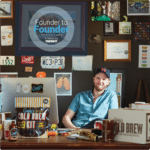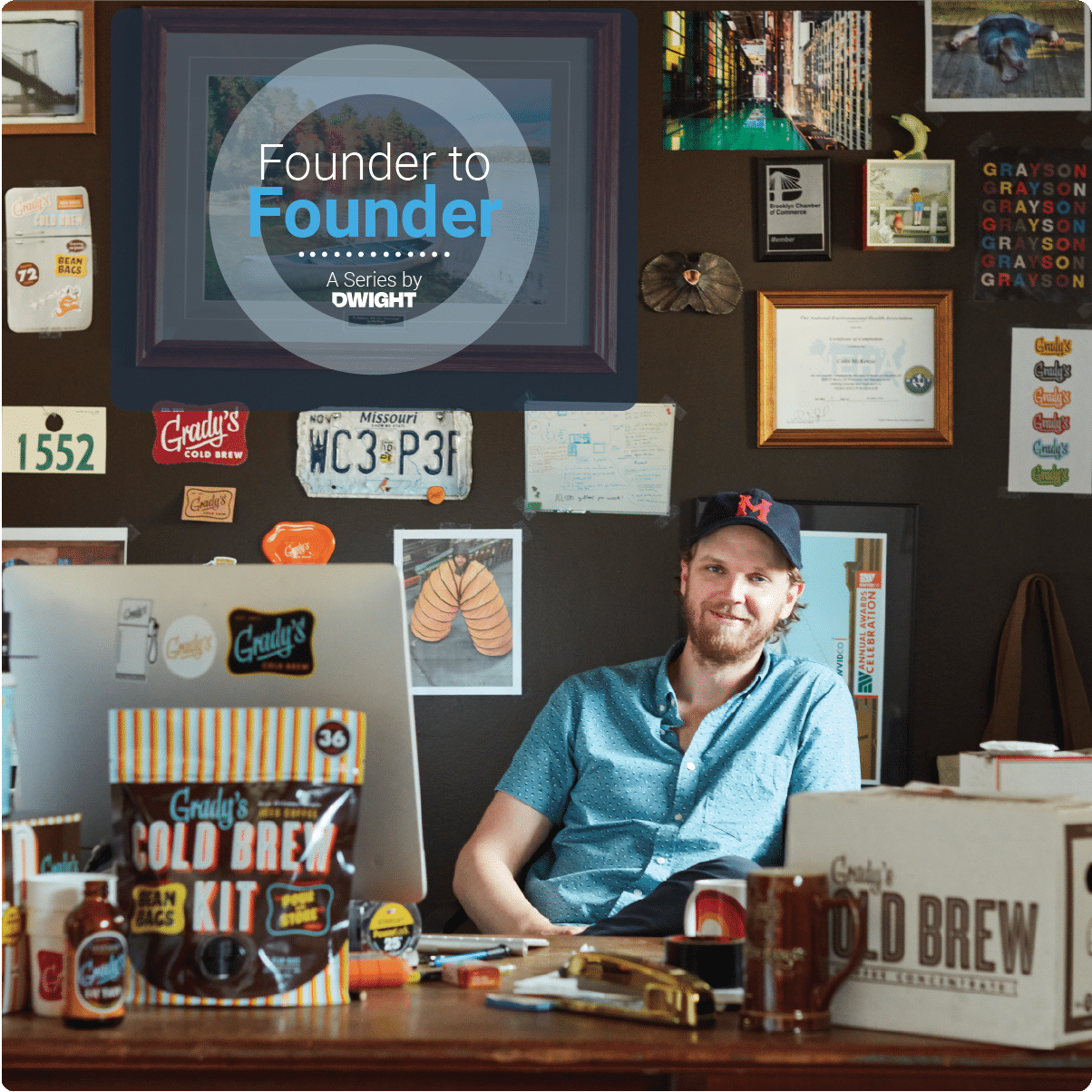
A Conversation with the Co-Founder and CEO of Grady’s Cold Brew
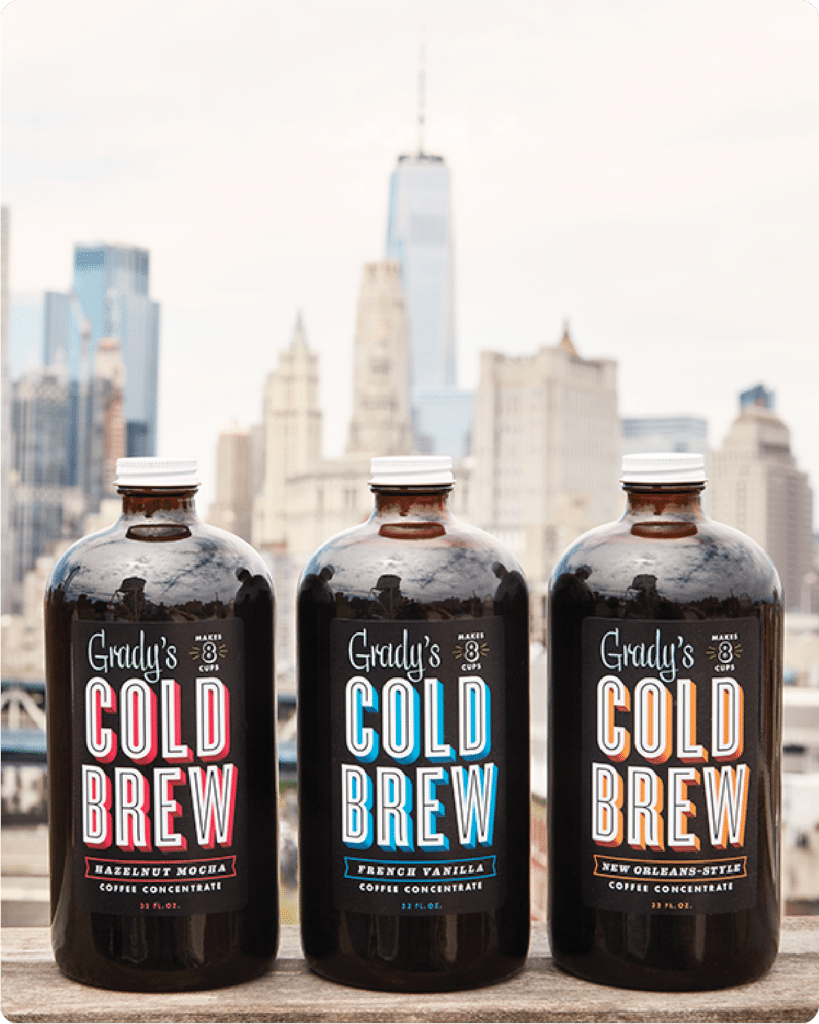
Launched in 2011, Grady’s was one of the first companies to brew and bottle a cold brew beverage. Within year one of operations, Grady’s Cold Brew was awarded the title of ‘Best New Beverage’ at BevNET’s New Beverage Showdown. Suffice it to say, the coffee company that prides itself on a 20-hour brewing process has garnered an avid following since its inception, leading to consistent YoY growth over the last decade.
Co-Founder Grady Laird is a sought-after expert for iced-coffee stories; he has been filmed for NY1 and Vice, and has appeared in Bon Appetit, New York Magazine, Women’s Health. In 2021, Grady’s officially moved into their new 15,000 sq. ft. brewery in the Bronx. Hear more about this meticulously considered endeavor and their learnings in this edition of Founder to Founder.
1. In your experience, what are the key considerations when deciding whether to work with a co-packer versus manufacturing in-house?
When we first started Grady’s, my dream was always to manufacture in-house. I grew up watching factory tours on Reading Rainbow, How It’s Made, and the Food Network, so I’ve always been fascinated by the equipment and processes involved in making a tangible good. Nevertheless, the decision was also a product of circumstances. When we launched in 2011, there was no beverage co-packer in the Northeast with experience cold-brewing and bottling coffee. We had to figure it out ourselves, pulling equipment and expertise from the beer and wine industries and developing a proprietary process we still use to this day.
Ultimately, I think a combination of both is the best answer. Utilizing a co-packer may be better for the bottom line and speed-to-market, but it’s not a sexy sell and does little to enhance your brand identity. The Willy Wonka-like feeling of having a factory and making everything in-house goes a long way for authenticity, marketing, and product quality, but you also have to be aware of how small these windows are before a ton of competition enters the market (from big and small players). Ramping up in-house is an investment that can cause delays.
2. When meeting with a potential co-packing partner, what information should you come prepped with and what questions should you ask them?
The most important thing to know is what your volume estimates are and how they will jive with minimum volume requirements. Many larger co-packers have extremely high run sizes that are completely out of reach for young start-ups. There are definitely smaller companies that will be willing to work with you, but you will likely be paying a substantially higher price until you can scale up with them. As long as you’re sure you’ve chosen a partner who can grow with you at your pace, I think the higher costs are worth it. You don’t want to be stuck with a ton of inventory and no place to store or sell it.
It’s also really important to know what it is that makes your product special and not be willing to compromise on that. Co-packers will want to slot you into existing production lines without much modification, but that can easily dilute your brand. A lot of the products produced at co-packers are virtually indistinguishable… same ingredients, same flavor, and same packaging. If you have something unique, you need to find a partner that is willing to keep that.
3. What should a company look for in a co-packer? How does this come into play as you work together?
Experience in your specific category and the packaging you desire. They don’t need to produce the exact same thing, but it really helps if they are close. This will allow you to piggyback off some of the generic inputs (blank aluminum cans or milk for example) that they’re already buying in bulk. They’ll also have experience working with the companies you ultimately distribute to that may have unique packaging and pallet requirements.
Strong communication. If you want to have a successful partnership, you need to find someone who will be available when you need them and can address issues that come up during production runs. You likely won’t be their biggest client at the get-go, but you still need to find someone that responds, is transparent, and is able to handle some criticism as you work together to fine-tune things (all of those go both ways).
Extensive food safety certifications and documentation. This is especially important if you’re selling into bigger accounts that need specific facility certifications (SQF, etc) that can be expensive and time-consuming for a company to obtain at the beginning. It also gives you assurance that you won’t be putting something out there that could hurt someone.
Geographic location. You have to factor in the freight costs of getting things to and from where they’re manufactured to where your customers are. It’s also important to be accessible enough that you can be present during initial runs (or every run) to ensure that products are up to your standards. That’s not to say that it always has to be close by…sometimes having a facility on the opposite coast is exactly what you are looking for in a co-packer.
4. Any tips on how to uphold a quality customer experience when outsourcing this function?
I don’t think you necessarily want to broadcast that you use a co-packer to your customer base. Fans of your brand will always prefer that you’re the ones making it, but there are ways to get creative. Maybe you don’t have a massive production facility, but you can have a much smaller lab, pilot plant, or tasting room where you can showcase your hands-on approach to innovation and R&D…even if you are not producing the bulk of your product there.
You also have to accept responsibility for everything that has your name on it. You can’t hide behind your co-packer if something goes wrong, so that makes it especially important that you are constantly testing and auditing the quality of the product being produced for you. Using a co-packer is not a “set-it-and-forget-it” process.
5. Any additional tips?
Your order of importance for a co-packer is determined by volumes and sales. You will get bumped in a heartbeat if one of their bigger clients needs something ahead of you. You have to accept that, but it can definitely burn when it happens. This was especially true during the demand fluctuation and supply chain insanity we are seeing right now. Having our own facility allowed us to be a lot more flexible and nimble than if we were relying 100% on a co-packer.
About Grady’s Cold Brew
Grady’s Cold Brew brings gourmet, coffee-shop quality cold brew to your fridge with an affordable, convenient, and highly-customizable concentrate that will satisfy coffee snobs and novices alike. Available in ready-to-pour bottles or brew-it-yourself Bean Bags. Established in 2011.
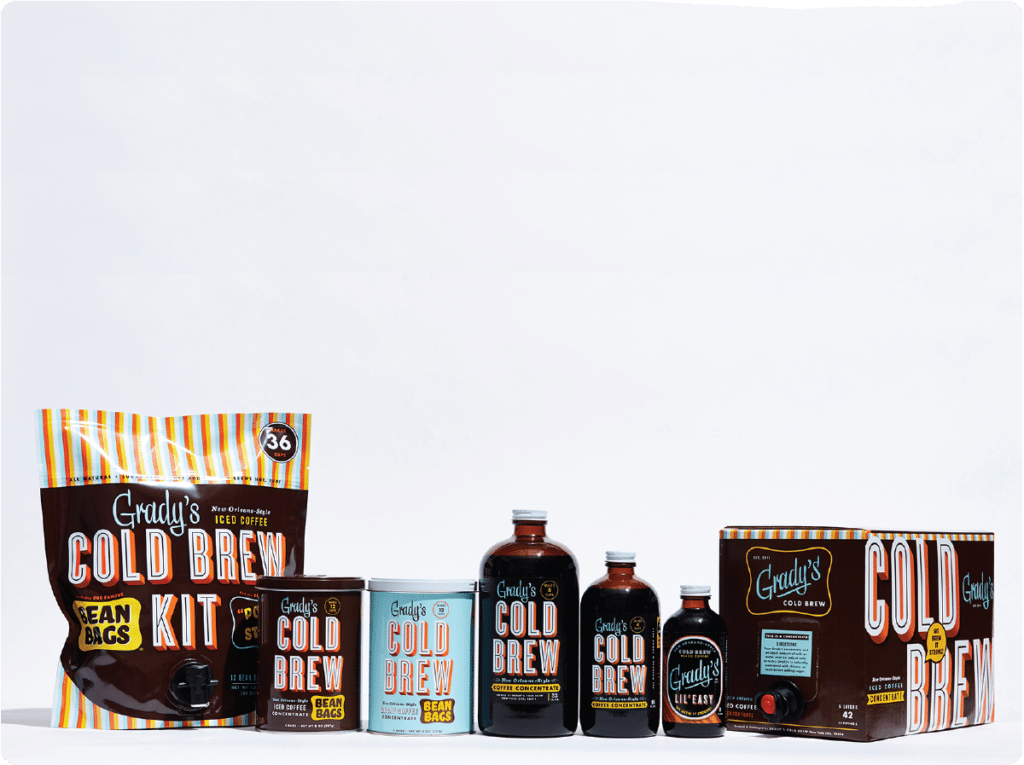
- Grady’s was one of the first companies to brew and bottle a cold brew beverage
- First to launch a dry version of Cold Brew called Bean Bags that have since been copied by Starbucks, Dunkin, McCafe, etc.
- $35 million in sales over the last decade with consistent YoY growth since 2011
About Grady
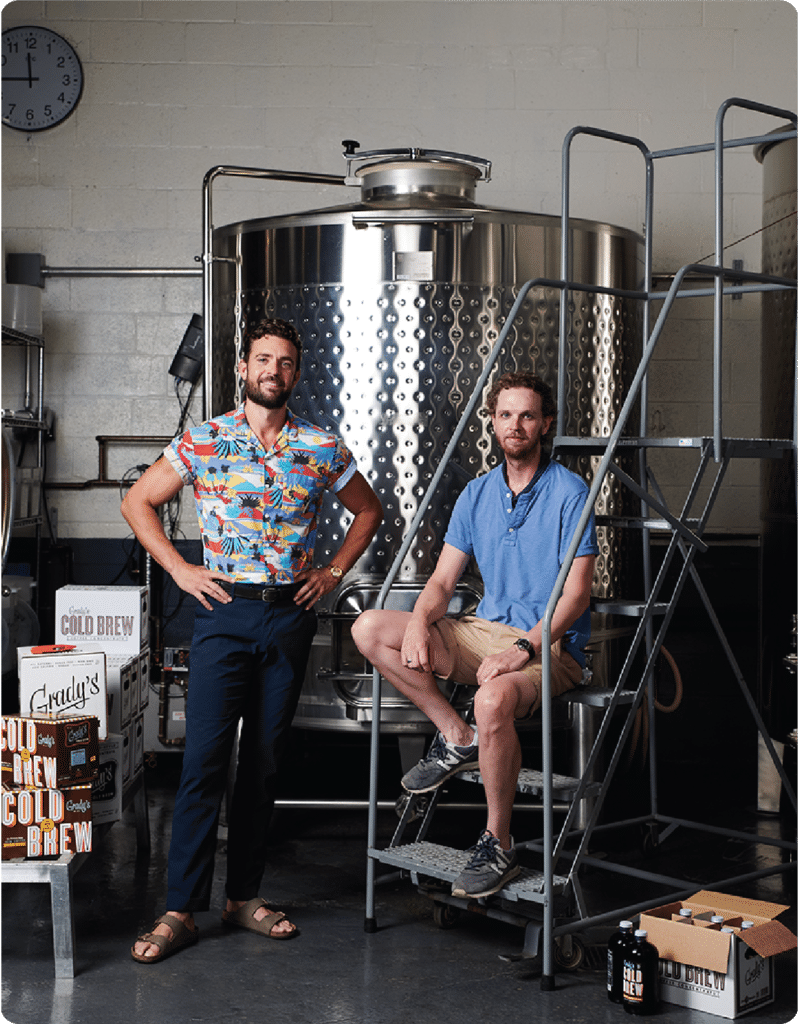
Grady is the Co-founder of Grady’s Cold Brew, one of the nation’s first companies to bottle cold-brewed iced coffee. Grady is also a cook, editor, and writer — he previously wrote a grooming column forGQ.com called “Beauty Tested, Beast Approved” and has 10 years of experience as a production editor for magazines, including GQ, Men’s Vogue, Details, Harper’s Bazaar, and Condé Nast Traveler.
He is a sought-after expert for iced-coffee stories: He has been filmed forNY1 and Vice, and has appeared in Bon Appétit, New York Magazine, and Women’s Health, among other publications. Grady holds a BA in Journalism with an emphasis in Advertising from the University of Missouri–Columbia. As a serial entrepreneur, nothing infuriates Laird more than a good idea that dies before it’s ever attempted. He lives with his two sons in Pelham, NY.

